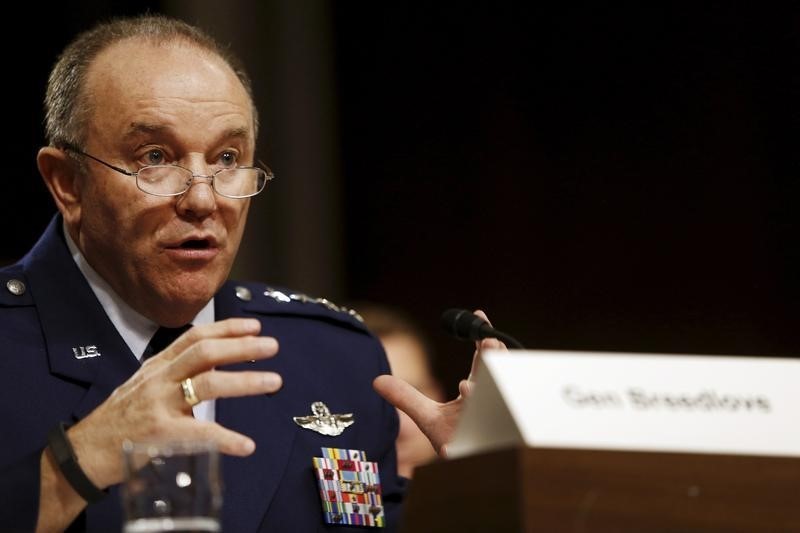SWIETOSZOW, Poland (Reuters) - NATO's top commander said on Wednesday Russia's announcement it was adding 40 new intercontinental ballistic missiles to its nuclear arsenal was not the kind of behavior expected of a responsible nuclear power.
President Vladimir Putin's announcement on Tuesday of the planned new deployments put further strain on the relations between Moscow and the West, already tense over the Ukraine crisis.
"This is not a way that responsible nuclear nations behave," U.S. Air Force General and NATO supreme allied commander Philip Breedlove told Reuters during a visit to Poland.
"A rhetoric which ratchets up tensions in a nuclear sense is not a responsible behavior and we seek and ask that these (nuclear) nations handle this particular type of weapon in a more responsible way."
Following Putin's announcement, NATO Secretary General Jens Stoltenberg accused Russia of nuclear saber rattling, describing it as "destabilizing and dangerous".
Speaking to Reuters on Wednesday, Stoltenberg said Russia was investing heavily in new military capabilities, including nuclear.
"They are exercising more their nuclear forces, and they are also using nuclear rhetoric as part of their strategy," Stoltenberg said.
Asked whether Macedonia and Montenegro should be invited to join NATO at an alliance summit in Warsaw next year, Breedlove said that while the countries were ready in military terms, the decision to invite them would ultimately be political.
Macedonia and Montenegro want to follow in the footsteps of Albania and ex-Yugoslav Croatia, which joined NATO in 2009, and Poland's defense minister said that the two countries should be invited next year.
But Russia has opposed any NATO expansion to former communist nations of eastern and southeast Europe, part of a competition for geostrategic influence since the end of the Cold War that lies at the heart of the current conflict in ex-Soviet Ukraine.
"From a military point of view these nations have done the things that we need them to do," Breedlove said.

"To have the last sort of non-NATO nation like Montenegro in that area join (the alliance) would certainly make the military situation there simpler."